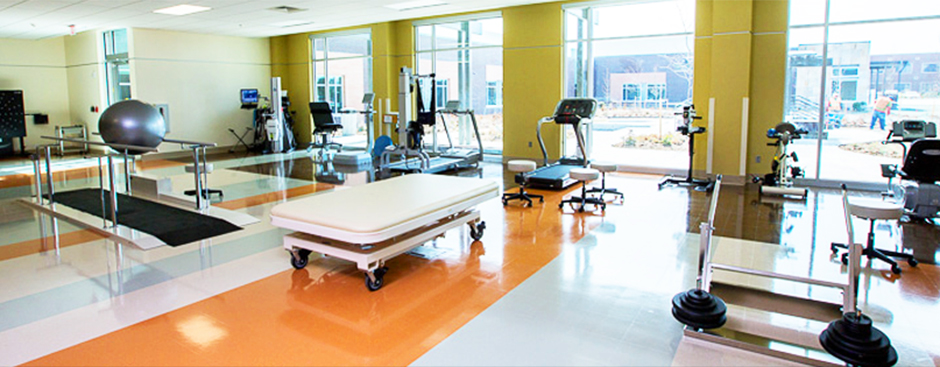
Physical Therapy
The purpose of physical therapy in any setting is to maximize a patients function through preservation, enhancement of and/or restoration of physical impairment after injury, trauma or as a result of an underlying disease process. Physical therapists focus on movement of the body through ROM, strengthening and education on compensatory strategies based on injury or deficit present.
Physical therapy will focus on the following areas:
- Safety
- Education
- Strength training
- Balance/Falls risk
- Coordination
- Bed mobility & transfers
- Walking with and without use of assistive device (e.g., cane or walker)
- Return to work, school, hobbies
Occupational Therapy
The purpose of occupational therapy in any setting is to improve an individual's ability to participate in meaningful and purposeful activities that "occupy" one's time. This includes activities of daily living and self-care activities, work, play and leisure activities. "Occupation" includes things that people need to do, want to do, and are expected to do. Occupational therapy promotes health and well-being through occupation; it enables people to participate in activities of everyday life.
In the inpatient setting occupational therapists will continue to work with individuals to maximize their independence in activities of daily living and self-care ability as well as to train caregivers or family as needed should a person require assistance at discharge. Occupational therapy in an inpatient rehabilitation setting is more intense, and patient's are often required to participate in therapy up to 4 hours daily including occupational therapy, physical therapy, and speech therapy. Occupational therapy in the inpatient rehab setting will continue to address performance components including ROM, strength, balance, coordination, vision, cognition, etc. as well as to train individuals in activity modification and compensatory techniques with the ultimate goal of maximizing their ability to participate in meaningful and purposeful activities of everyday life.
Occupational therapy will focus on the following areas:
- Safety
- Patient/family education
- Basic ADLs and IADLs
- Activities of Daily Living
- Eating
- Bathing/Grooming
- Dressing
- Toileting
- Walking, getting out of bed or to chair
- Instrumental Activities of Daily Living
- Making chores list
- Grocery Shopping
- Driving
- Balancing a Checkbook
- Upper extremity function
- Perceptual-motor function
- Vision/visual perception
- Driver evaluation and training
Speech-Language Pathology
In the inpatient setting, therapy is started to address each patient’s particular needs. Therapy goals are set jointly between the speech therapist and the patient, with input from the family as needed. Therapy is regular and typically intensive, designed to speed up recovery and enable a return to work or home life.
Speech-language pathology services will focus on the following areas:
- Assistive technology
- Attention
- Auditory comprehension
- Memory
- Planning & Organizing
- Reading
- Reasoning & Problem Solving
- Social Interaction Skills
- Spoken & written language skills
- Speech Production
- Swallowing
- Voice